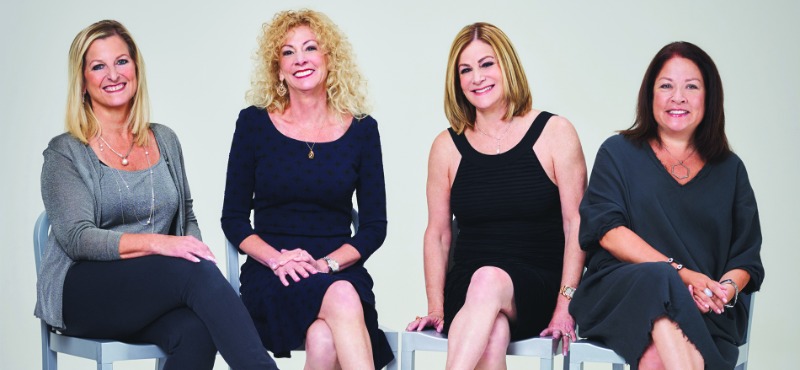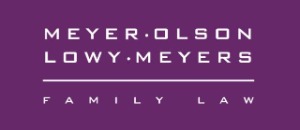With more than 100 years of combined legal experience, the founders of Meyer, Olson, Lowy & Meyers—Lisa Helfend Meyer, Doreen Marie Olson, Dana Lowy, and Felicia R. Meyers—are a force to be reckoned with in the area of family law. They recently sat down with Best Lawyers for a candid conversation about their work in the field and the most pressing issues facing family law today.
As family law strategists and trial attorneys who have worked in this field for decades, what’s different now versus 20 years or even 10 years ago?
Lisa Helfend Meyer: There has always been a great need for family law attorneys, given that more than 50 percent of the population gets divorced. In recent years, that need has only continued to grow, with custody cases involving all different kinds of families and the legalization of same-sex marriage increasing the population of people who require our services.
Doreen Marie Olson: I think in the past family law was seen as the ugly stepchild area of law—as a bleak field to practice in, or even as an area lacking in sophistication. But in truth, it encompasses all aspects of law, and it’s only increasing in its complexity.
Dana Lowy: Many of the family law cases that we see now involve complicated and serious issues, whether they’re substance abuse problems or custody arrangements for children with special needs.
Has that complexity and also the sensitivity of these cases affected the approach you take in your practice?
LHM: First, we recognize that there are no garden-variety solutions to these matters. You have to consider both the facts and the personalities involved, and come up with novel solutions, because a strategy that works for one person might not work for someone else.
DMO: One of the unique aspects of our practice is that we integrate the expertise of different professionals to help in the process, such as mental health professionals, tax and estate planning experts, and forensic accountants. It’s a holistic approach, and I think it differentiates us from many law firms.
Felicia R. Meyers: Our approach benefits our clients, because often in cases with complicated issues, the court might not know what to do, so then it becomes incumbent on the family law practitioners to propose creative and practical solutions for the court.
Is that common, for the court to rely on the attorneys for guidance?
DL: Increasingly, yes; as more judicial officers are rotated in and out of the family law department, there’s a higher chance of having a family law judge who just started from traffic or criminal court, and who may not have an expertise in these particular sophisticated issues. That’s why doing your homework
on the presiding judge is so important.
FRM: It’s also why in high-asset cases where clients can afford it, many choose to retain private judges, because with a private judge it’s a much more efficient process, and clients are guaranteed to have a judge who is experienced in family law.
Have you found that clients are more interested in alternative resolution methods, and when do you recommend that option?
LHM: When prospective clients call, they already have the word mediation in their vocabulary; but in family law, there’s many ways to mediate a case, so our first step is usually determining what mediation means to them and suggesting the best approach based upon their specific needs.
DMO: We also strive to educate clients about their options. Often, people will call and say, “My spouse suggested mediation.” But mediation isn’t for everybody, and especially in cases involving domestic violence, traditional mediation—where you have to be in the same room as your spouse and there is an imbalance in financial power—might not be the right approach.
DL: Everything ultimately comes down to communication, which is why we make a point of listening to clients, keeping them in the loop, and empowering them to make decisions. This is a practice built on relationships, and we’ve found that taking a team approach is the most effective way to make a difference.
Is that what you’ve enjoyed the most about working in this area—building those relationships?
FRM: With family law, you’re playing a pivotal role in someone’s life, so we definitely get a lot of satisfaction from representing clients through a very difficult time in their lives.
LHM: As long as we can improve our clients’ lives, that’s all that matters.
Learn more about family law or Find a Lawyer by Best Lawyers to connect with experienced lawyers who can guide you through complex cases.

































